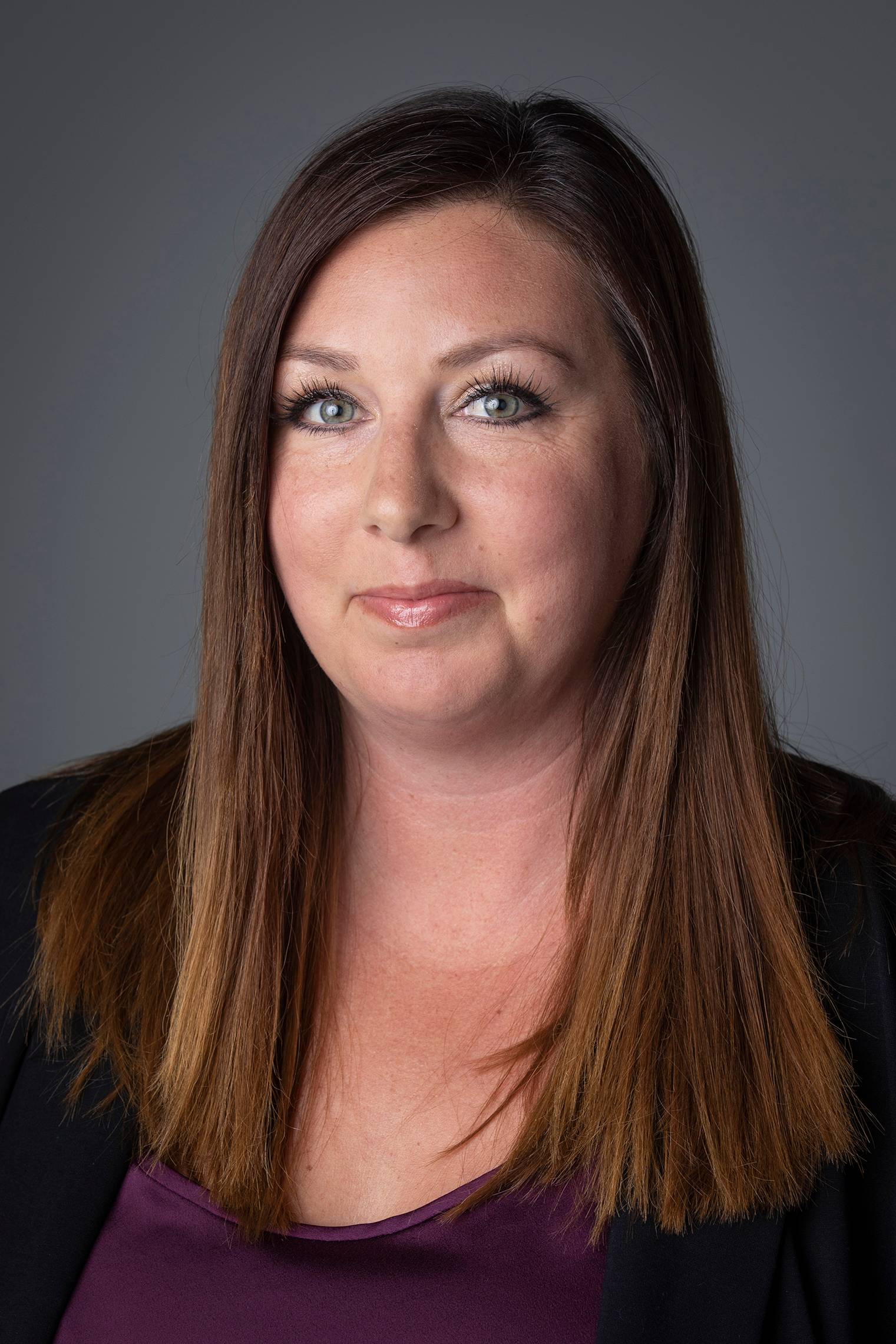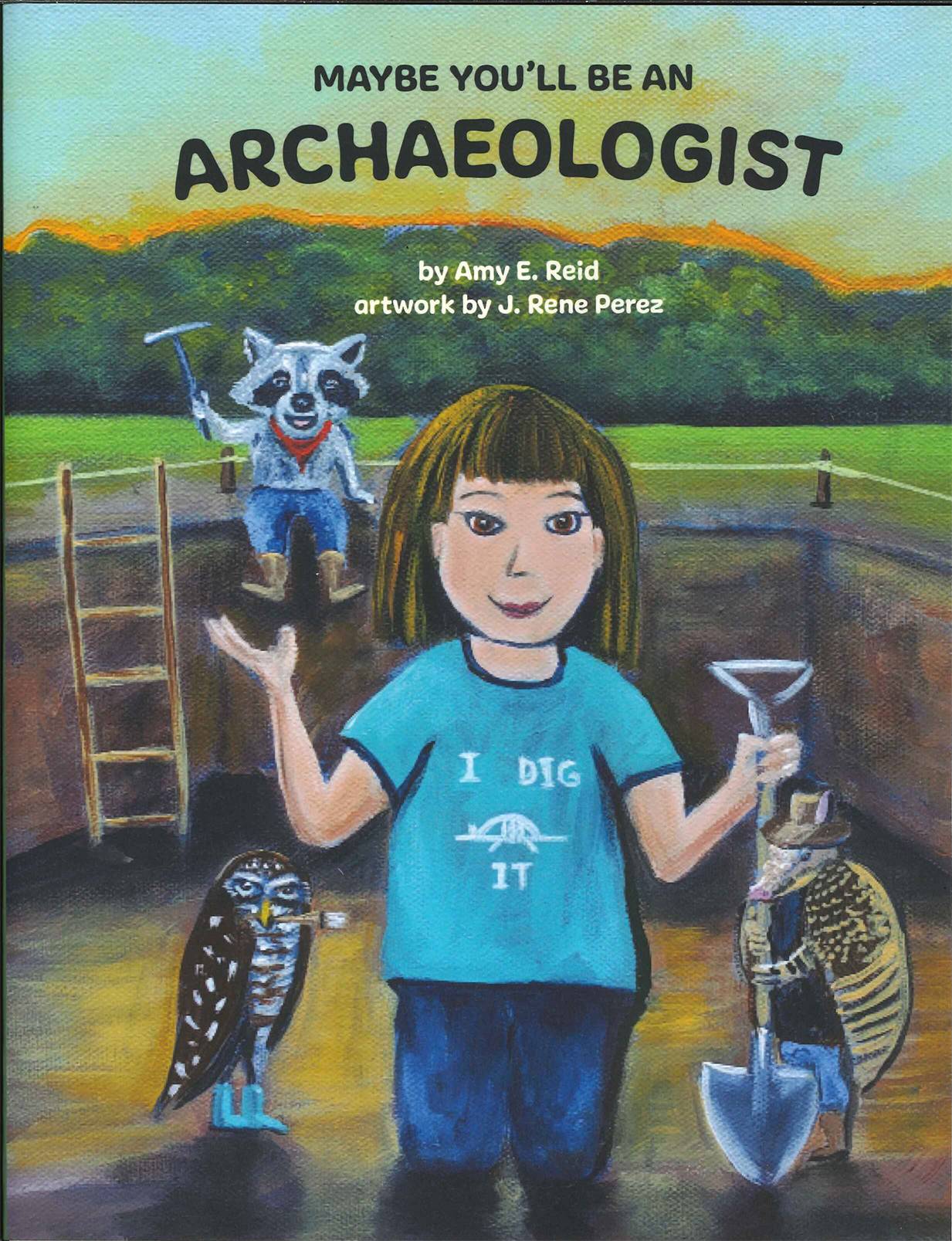Texas State curator writes children’s book to benefit Center for Archaeological Studies
Julie Cooper | December 1, 2021

Amy Reid, curator for the Center for Archaeological Studies (CAS) at Texas State University, said she is one of those rare people who knew what they wanted to be when she grew up.
“I just kind of kept reaching for that dream until it happened. I was probably 6 or 7 when I learned what archaeology was,” she said.
That experience inspired her to write a children's book, Maybe You’ll be an Archaeologist, with all the proceeds going to benefit CAS’s public outreach mission under their Public Archaeology Serving Texas program (PAST). The picture book tells the story of a young girl named Brea who is inspired to become an archaeologist.
J. Rene Perez, a San Marcos artist, is the illustrator. Reid said the book is loosely based on her experiences as a child visiting her aunt who lived in Arizona. “My aunt taught me what archaeology was. There are a lot of archaeological investigations and museums where she lives. I learned how archaeology could benefit people, including descendent and indigenous communities,” Reid said.
Released in October, Reid said the book was the Texas Archaeology Month project for CAS.

“If you are in the market for a children's book about archaeology, you're probably only going to find something about dinosaurs, which is not something we study; or you're going to find something about mummies. I knew that there was a need for a book like this, so the book itself is public outreach but it's also a creative fundraising tool where all of the sales and revenue goes into an account that is designated for us to do public outreach throughout the year,” Reid said.
As for her role in archaeology, Reid said she would explain her job this way: “I’d want people to think about what happens to these archaeological collections after they are dug up, after they are unearthed. That's really what my career has evolved into doing — taking care of those collections and making sure they're available for research, available for the public.
“I really care a lot about the collections, and making sure we are the best stewards we can be of these resources."
Today, Reid is in charge of taking care of all the archaeological collections in CAS’s archaeological repository. “CAS has two main functions. One, we do contract or compliance archaeology. Our director Dr. Todd Ahlman and our associate director, Dr. Jodi Jacobson bring in funding and oversee the CRM (Cultural Resource Management) side of our center. We also have curation. We accept archaeological collections from all over the state that come from CRM investigations. Many archaeologists are required by law and as part of their permits to submit the archaeological collections they create through their work,” she said.
One of the projects that Reid helped bring to CAS is the Veterans Curation Program. Working with the U.S. Army Corps of Engineers, the university provides vocational training and temporary employment to veterans. Since it began in 2018, CAS has hired and trained student veterans to rehabilitate important artifact and archives collections from Texas. Applicants are veterans attending Texas State, though not necessarily anthropology majors. “I had been an admirer of the program for years and I think it took about six years of us reaching out and saying ‘hey, we’re a great university for veterans and this would be an ideal program for our center.’”
A master’s graduate of Texas State in 2010, Reid teaches a curation class each fall semester for the Department of Anthropology, conducts research, and writes grant applications for research, collections care, and public outreach. And, she adds: “I’m in my first semester of the applied anthropology Ph.D. program.”
“Something that we are passionate about as a center is our relationship to indigenous communities and descendant populations. One thing I did for this book and one thing I'm doing for our curation program, is looking for ways to foster and improve that relationship. Maria Rocha from the Indigenous Cultures Institute (in San Marcos) helped review the book and consulted on it so that it is culturally sensitive and there are no representation issues. That was something important with the book and very important to me, as a representative of an archaeological repository with collections that they may have interest in.”
Maybe You’ll be an Archaeologist can be purchased from online retailers such as Amazon and Barnes and Noble.
Share this article
For more information, contact University Communications:Jayme Blaschke, 512-245-2555 Sandy Pantlik, 512-245-2922 |